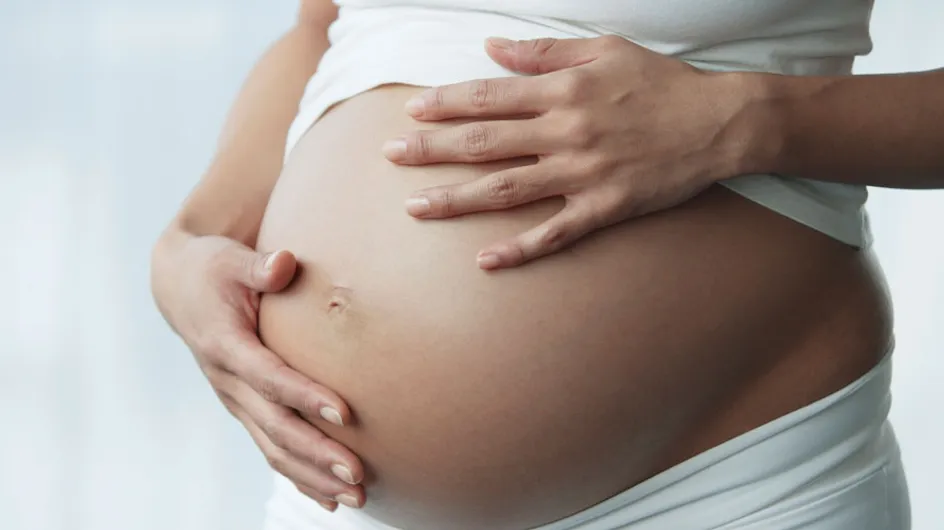Your baby’s development
Your baby weighs about 1.5kg and is 40 to 44cm long. The digestive system and kidneys are fully developed, and nails start to form. Breathing and internal temperature are self-regulated. Baby takes up more and more space in your uterus and feels a bit cramped, so movement is limited. Often during this month baby positions him or herself vertically, with the head downwards. Baby begins to discover his or her body, moving hands and toes, touching the umbilical cord and sucking his or her thumb.
Arousal of the senses
> Hearing: The fetus can now hear. The development of the auditory system starts between 5 ½ and 6 months. Baby can hear a whole range of sounds, although they’re muffled by the amniotic fluid. On a more or less conscious level, baby also hears noises coming from within: rumbling stomach, heartbeat, etc. As to whether babies can identify high-pitched sounds (mum’s voice) or low-pitched sounds (dad’s voice), scientific opinion is divided. But studies have shown that babies can distinguish a female voice from a masculine one, or one different melody from another. After birth, baby will be more sensitive to music and voices heard when in the uterus. Try playing music to your baby whilst in the womb.
> Sight: The eyes are now open. When a bright light is pointed at your stomach, baby jolts or the heart rate increases, implying sensitivity to visual impressions. The other senses (smell and taste) continue to develop as well.
Unpleasant side effects for you
You easily get out of breath just doing everyday tasks. You might also experience:
> Vulval varicose veins: These veins appear between the 7th and 8th month, and start off with feelings of heaviness or itching. They can be painful during sexual intercourse but often subside 3 or 4 months after the birth. Avoid hot baths and strong spices such as cayenne, mustard, black pepper, hot sauces and curry.
> Water retention and swelling: It’s normal for the ankles, legs and face to swell. A woman’s body contains more water when she is pregnant. The best thing you can do is drink lots of water (1.5 litres per day) to drain your tissue properly. To avoid swelling, avoid wearing clothes that are tight around your ankles and wrists. If swelling occurs suddenly, contact your doctor as soon as possible as this could be a sign of a kidney problem.
> Back pain: This gets worse during the last few months of pregnancy. Adopting correct posture when sitting or standing and doing stretching exercises will offer relief. In the majority of cases, lumbar (lower back) pain lasts for about a year after giving birth. Gentle exercise like swimming or walking will help you get back on form.
The importance of rest
Towards the end of your pregnancy, insomnia is frequent because lying down becomes uncomfortable, but also because the thought of giving birth may occupy your mind.
> You should take light naps in the evening and sleep in a fresh, aired room. If you feel like changing places to sleep, then do so: the sofa can sometimes be more comfortable than your bed. Try to set aside time to rest during the day: a little siesta in the morning and one in the afternoon, for example. Your baby’s sleep won’t be affected by doing so because baby has a different rhythm.
> The same goes for daily tasks: don’t be shy about asking for help with housework or shopping. To avoid the risks of premature birth, keep your lifestyle as stress-free as you can. Staying standing for long periods of time and carrying heavy objects are not allowed!
Your diet
During the 3rd trimester, increase your calorie intake to 2800 calories a day. Prioritise dairy products, carbohydrates, iron, as much red meat as white meat, fruit and vegetables. Note than from the 5th to the 7th month, the rate at which you put on weight should be between 350 and 400g a week. During the last few months, it increases to between 450 and 500g.
Preparing for the birth
With UK mothers entitled to start their maternity leave 11 weeks before their due date, you may decide to start it this month. This will give you time to prepare for the birth and get the house ready for baby, but it’s also time to rest and take frequent naps. With your baby weight and heavy legs, you'll find moving about more and more tiring. Pay attention to your balance, as your centre of gravity will have altered and you may find you lose it more easily!
Often during the 7th month women attend antenatal classes. There are a variety of antenatal classes to choose from, including free ones through the NHS. In class you will learn about what happens during childbirth, how to handle the pain, plus breathing techniques and relaxation exercises. It’s important to go to these classes because childbirth does require preparation! If dad is planning on being present at the birth, he can also go along with you to the classes (or you may decide to attend together anyway).
Medical check-up
At 28 weeks, your midwife will start to measure your bump so that she can keep track of your baby’s growth. If you’re Rhesus negative, you will also be offered an injection that will coat any fetal cells that may have leaked into your circulation, which could potentially produce antibodies that could harm your unborn baby.
You will also have a blood test to check that your iron levels are sufficient. If not, you may be given an iron supplement to ensure that your levels are safe for the birth of your baby.













